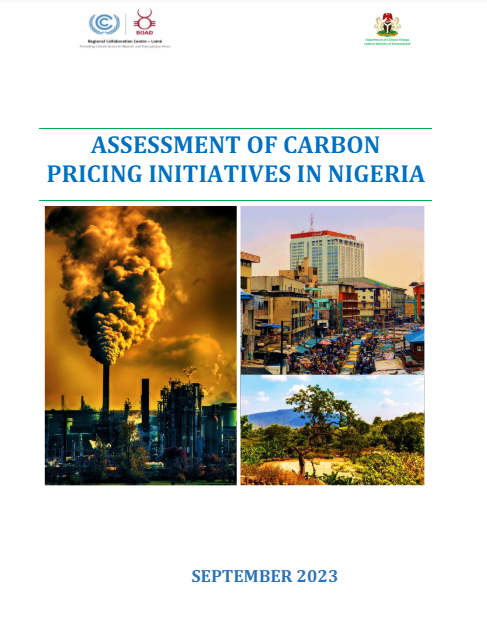Carbon pricing is largely regarded as one of the most effective and simple methods for reducing greenhouse gas emissions (GHG). As a result, a rising number of nations (developed and developing) have adopted or are developing carbon pricing mechanisms as one of the measures to support the implementation of Nationally Determined Contributions (NDC).
While the overall goal of carbon pricing instruments is to reduce GHG emissions, its adoption in Nigeria would as well provide other benefits such as hastening the deployment of climate-friendly alternatives like renewable energy and energy efficiency, encouraging investment in these clean technologies lowering the country’s reliance on imported energy, and reduction of local air pollutants like particulate matter, carbon monoxide, nitrogen oxide, sulphur dioxide etc. Initiating carbon pricing mechanism can be a valuable source of revenue for government.
Nigeria has over the years shown increasing interest in reducing its emissions and has in its 2018 Gas Flare Commercialization Programme, introduced the payment regime (polluters’ pay) which mimics the Carbon Tax. Further to this is Nigeria’s participation in various relevant partnerships and initiatives, Nigeria’s current (and potentially future) NDC and potential long-term low emission development strategies and the country’s interest to consider cooperative climate action under Article 6 of the Paris Agreement.
In the updated NDC submitted in 2021, based on the new mitigation analysis, “Nigeria restates its commitment to its unconditional target to reduce GHG emissions by 20% below business-as-usual by 2030, and increases its conditional target to 47% below business-as-usual by 2030 on the condition of receiving appropriate support. All these initiatives are pointers to Nigeria’s efforts in reducing its GHG emissions.
However, in view of achieving and implementing Nigeria’s NDC it is timely to consider the different approaches for carbon pricing necessary to steer the country on the trajectory of low-carbon policies while considering national priorities such as socio-economic development. Considering this, the goal of this study is to examine carbon pricing design options that fits into Nigeria’s context considering the current and future circumstances of the country to enable the government to make informed decision; should they decide to adopt a carbon pricing instrument as a means of GHG emission reduction and enhancing the overall goal of achieving the country’s NDC.

